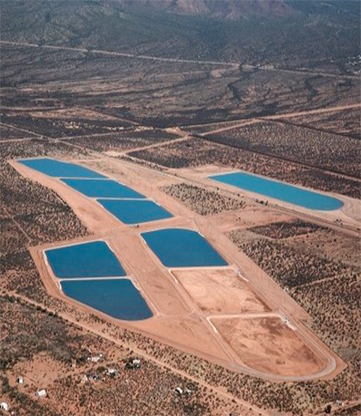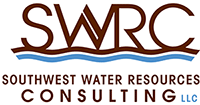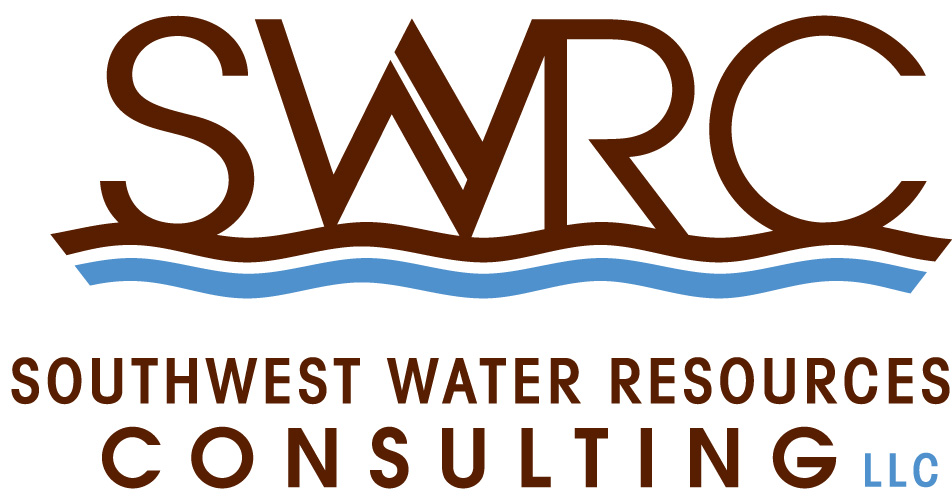SCENARIO RELATED PROJECTS
University of Chile (2017)
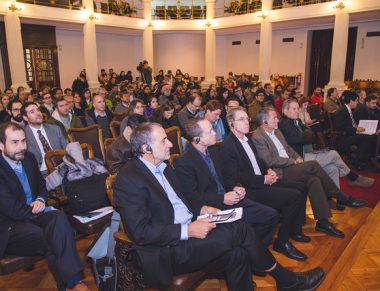
Served as a water-planning expert on an international team invited to share practical lessons learned at an Applied Recharge Symposium in Santiago. The panel, shown on right, responded to questions from the audience. A key message was that project managers should identify longer-term planning uncertainties since the region’s planning environment will likely change during the projected life of proposed facilities. This would help ensure future operational flexibility and a worthwhile return on investment.
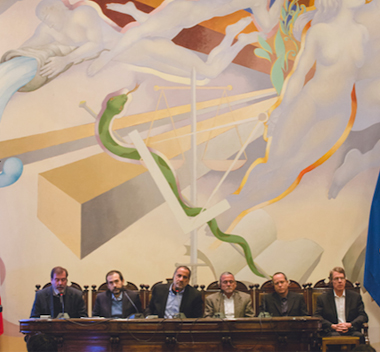
Colorado Water Conservation Board II (2017)
Assisted the State’s Water-Supply Planning Section in quantifying scenario parameters to refine the water supply-and-demand futures presented in Colorado’s Water Plan 2015. This process is part of Colorado’s on-going efforts to update technical analyses and garner stakeholder support for state wide water-planning initiatives. Such initiatives will help address Colorado’s water-supply challenges in the decades to come. In partnership with CH2M Hill.
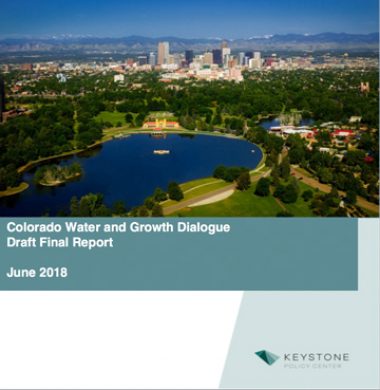
Keystone Policy Center (2016)
Trained project team members from the Keystone Policy Center, the Sonoran Institute, and Colorado’s Department of Natural Resources to help support a multi-stakeholder scenario-planning process with members of the Colorado Water and Growth Dialogue. The effort also entailed designing and facilitating scenario workshops to explore both the opportunities and challenges in promoting integrated urban/water-use planning along the Colorado Front Range. In partnership with the Sonoran Institute.
Denver Water (2016)
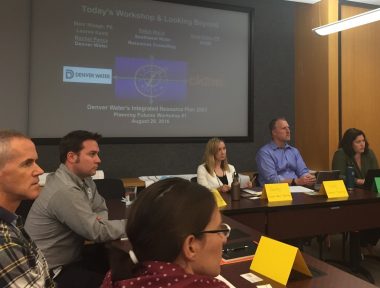
Designed and facilitated five scenario planning workshops with Denver Water staff and project team consultants to support development of Integrated Resources Plan 2065. The Scenario Focal Question and the critical planning uncertainties were identified through facilitated,deliberative discussions in order to generate a diverse range of plausible planning futures. Denver Water has become a proponent of Scenario Planning. In partnership with CH2MHill and WaterPlan, Inc. Images: courtesy of Denver Water.
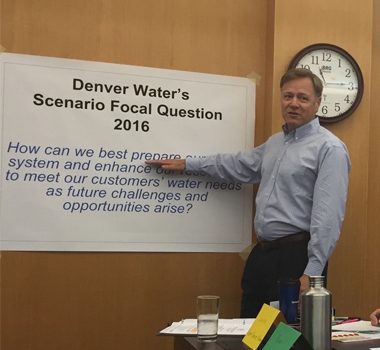
El Colegio de Sonora, Mexico (2016)
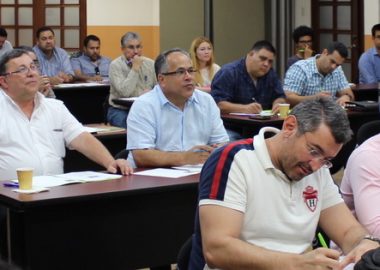
Developed and conducted a half-day workshop at the Colegio de Sonora to introduce professors, water management graduate students, local water managers, and state/federal regulators to the adaptive scenario planning process. The workshop and facilitated break-out sessions illustrated how the method can be used to address critical uncertainties in both regional and municipal planning environments. In partnership with Hermosillo Water and the University of Arizona..
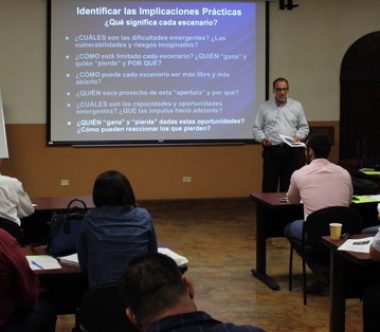
City of Denver, Community Planning & Development Department (2016)
Designed and facilitated a scenario planning process to identify the City of Denver’s overall strategic planning question for Blue Print Denver, an integrated City and County land-use and transportation plan. The workshops assisted City staff in developing a diverse range of credible planning futures given the many uncertainties in the metro-planning environment. In partnership with the Lincoln Institute of Land Policy and the Sonoran Institute.
Hermosillo Water, Mexico (2016)
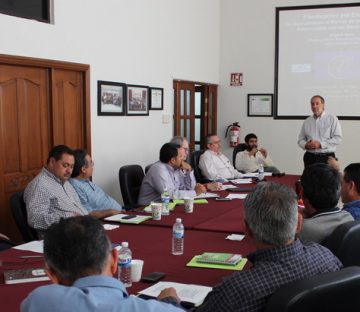
Conducted a 3/4-day workshop at Hermosillo Water to introduce water utility professionals, advisory board members, and civic leaders to the benefits of using adaptive scenario planning to address key water management issues. Working with water professionals from the University of Arizona, the workshop team demonstrated how the method can be used to identify and explore the challenges and opportunities associated with structural constraints and uncertainties in the Utility’s planning environment. In partnership with the University of Arizona and El Colegio de Sonora.
United Nations—Food and Agriculture Organization III (2015)
Advised and trained a project team comprised of staff members from the United Nations and Departamento General de Irrigation in using a scenario-planning process. Influential stakeholders from multiple economic sectors and planning agencies were invited to participate in facilitated discussion to identify the key drivers and future uncertainties that could collectively inhibit or promote economic development in an already over allocated subbasin in Mendoza Province, Argentina.
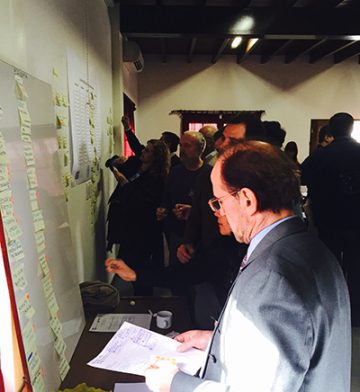
University of Arizona— Institute for the Environment (2015)
Invited to share my applied, practical experiences as a former municipal water utility administrator and as a scenario planning practitioner at a two-day exploratory workshop. Attendees were a mix of planning consultants and academic researchers who discussed various applications of the scenario process and shared their lessons learned as planning professionals. “Future mapping” was highlighted as a key project deliverable when working with forward-looking client organizations.
Southwest Colorado Council of Governments (2014/2015)
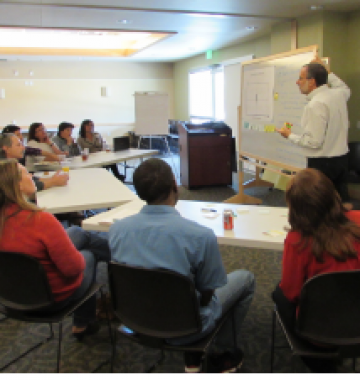
Served as the scenario planning workshop designer, skills trainer, and facilitator tasked with engaging representatives from key economic sectors, governmental agencies, and local political bodies in the five counties of southwest Colorado. The exploratory process focused on the potential implications of extended long-term drought, possible changes in local natural gas extraction rates, and the impact of global forces on the local economy. Uncertainties associated with these drivers were used to develop a diverse range of credible planning futures. In partnership with the Sonoran Institute and the Lincoln Institute of Land Policy.
White Mountains Land Trust, Arizona (2013/2014)
Assisted in designing the participant-engagement process and co-facilitated a series of scenario planning sessions with stakeholders from a two-county region in northeast Arizona. The objectives were to identify longer-term planning uncertainties, their associated implications for the region, and potential adaptive actions and options for decision makers to consider. Focal issue areas included climate change, regional economic development, regional water-supply availability, and forest management. In partnership with the University of Arizona.
Colorado Water Conservation Board I (2013/2014)
Provided consulting services as the Scenario Planning Advisor to planning staff tasked with developing the scenario elements of Colorado Water Plan 2015. A conceptual framework was provided highlighting the flexible, adaptive nature of the non-predictive process. A future-mapping framework was developed that integrated the highly-robust and the adaptive management components of the Plan. Narrative elements were prepared for inclusion in the Plan and graphic support was provided to facilitate stakeholder outreach.
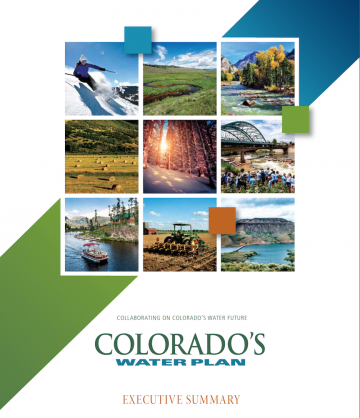
United Nations—Food and Agriculture Organization II (2013)
Served as a member of an international water-planning team consisting of technical experts from the UN-FAO, The World Bank, Chilean water agencies, and consultants. The team provided the Departamento General de Irrigation of Mendoza and Argentine regulators an overview of various types of scenario analyses and their potential usefulness in addressing water-resources and economic uncertainties when planning for regional economic development.
United Nations—Food and Agriculture Organization I (2013)
Served as a member of a resource planning team at an international conference on water, productivity, and economic development in Mendoza, Argentina. Flexible water-resources initiatives were highlighted that could facilitate a shift from depletion-based water management to more sustainable strategies. One example was integrating municipal and agricultural supply through aquifer recharge and recovery since it could reduce planning uncertainty and future risk for both sectors. In partnership with the University of Arizona.
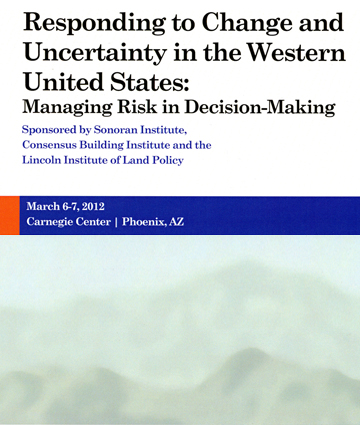
Lincoln Institute for Land Policy and the Consensus Building Institute (2012/2013)
Co-facilitated two multi-day scenario planning workshop trainings held in 2012 and 2013 for municipal water resources planners, regulators, university researchers, and land use/urban planners from agencies and organizations based in Arizona, Colorado, and Montana. The workshops provided the underlying rationale for applying adaptive, and by extension, “transformational” scenario planning techniques in uncertain planning environments. In partnership with the Sonoran Institute.
City of Tucson Water Department II (2010/2011)
Led the project team tasked with developing a professional services scope to generate a Recycled Water Plan for the City of Tucson. The task was previously called out as a “highly-robust” action in Tucson’s Water Plan 2050. The prior scenario analysis was updated to account for recent changes in the planning environment. This involved redefining the focal question and reassessing the Utility’s critical uncertainties. The team reformulated the future planning scenarios taking into account the City’s current and potential uses of its effluent entitlement. In partnership with Arcadis/Malcolm Pirnie. Image: courtesy of Tucson Water.
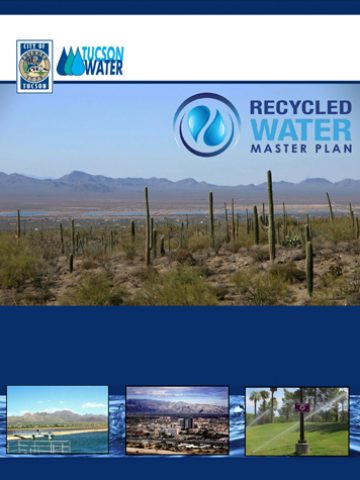
University of Arizona / Tucson Water / Pima County Waste-Water (2009/2010)
Introduced a multi-disciplinary engineering and policy research team at the University of Arizona to the scenario planning process and served as both an advisor and project participant. The project explored the range of future possibility with regard to siting future County wastewater and City reuse facilities in order to optimize treatment and cost efficiencies across jurisdictions. The cooperative project, led by the University of Arizona, was noteworthy since the City and the County had previously had a decades-long adversarial relationship over water-related issues.
City of Tucson Water Department I (2003/2004)
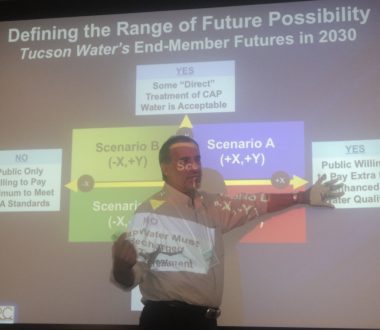
Co-led the project-management team responsible for developing the Utility’s 50-year integrated water plan. Two parallel adaptive scenario planning processes were applied to address future supply uncertainties associated with utilizing the City’s imported Colorado River water allocation and its locally-generated municipal effluent entitlement. The Utility’s use of the approach has since become a landmark case study for both domestic and international water professionals as well as for students of adaptive management. Images: courtesy of Tucson Water and the University of Arizona.
